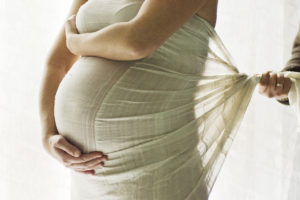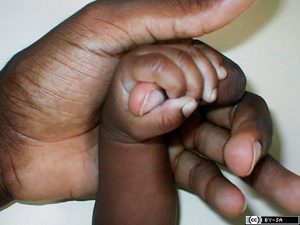Would You Refrain From Having Children to Save the Planet?
The thought is repulsive to many people, especially among the religious. But experts acknowledge that cutting back on births is a sure-fire way to mitigate the consumption-fueled destruction of the environment. Photo by VinothChandar (CC BY 2.0)
Photo by VinothChandar (CC BY 2.0)
Photo by VinothChandar (CC BY 2.0)
The thought is repulsive to many people, especially among the religious. But experts acknowledge that cutting back on births is a sure-fire way to mitigate the consumption-fueled destruction of the environment.
Quoted in The Guardian on Tuesday, general physician Pippa Hayes, 56, said her profession should encourage people to have smaller families. “Doctors should be promoting replacement number of children; two per couple, one per single parent,” she prescribed. “We don’t need to do this by coercion, we just need to talk about it.”
“I was sterilised after the birth of my second son because I believed I had no right to have more than two children – it would have been more than my reproductive share,” she continued. “Humans are tipping the balance with the natural world, to the detriment of both humanity and the other species that share our lovely, finite planet.”
Hayes is not alone in her view. A survey of 2,362 adults, commissioned earlier this year by the organization Population Matters, revealed that 63 percent of British adults think prospective parents should consider the effect their reproduction would have on the environment before having children. “Of that group, 51% believe people should be allowed to have no more than two offspring,” The Guardian reports.
Population Matters has seen its membership double in the last five years and now has 6,000 people on its mailing list. It promotes “sustainable family size” and campaigns for universal access to family planning services. It suggests that child benefit be paid for the first two children only, with families being means-tested before receiving subsidies for a third.
Like several other prominent naturalists, Chris Packham shares this ethos. “With wild species becoming extinct at hundreds of times the normal rate, we really have to recognise the connection and think hard about our sheer numbers, as well as our consumption and technology,” he said at the time of becoming a patron of the charity.
Depriving needy families of essential resources (as the above remark about “means-testing” suggests) would not be humane policy. But the necessity of discouraging people from contributing to overpopulation is well taken.
The limited-offspring policy has its informed detractors. Jules Pretty, professor of environment and society at the University of Essex, says consumption itself — not reproduction — is the chief cause of environmental degradation.
“The earth’s population will rise to 9bn, possibly more,” Pretty told the Guardian. “But if you look carefully at projections and fertility rates across the world, the population is on track to stabilise this century, almost certainly by 2050.”
“In 97 countries, the average women now has fewer than two children. … You need about 2.1 births to result in straight replacement because of child mortality, so we’re already heading for a decline,” he said.
“The big challenge is to develop a greener economy. … Somehow to make sure we’re able to consume goods and services on a sustainable footing so we don’t destroy the planet.”
Readers of Harper’s Magazine’s November article on the industrial practices required to meet America’s growing demand for chicken eggs should doubt that the transition to a “greener economy” alone would solve the problem. It must be acknowledged, at the very least, that the complexities of the global economy are so great that simply shrinking the source of demand for goods would be the simplest way to reduce consumption. And as dangerous as an ecological collapse promises to be, the simplest answers have their attractions.
Hayes has the last word in The Guardian’s article. “If a large British family lives as sustainably as it can,” she said, “they will still need the carbon-emitting infrastructure of homes, transport, schools and hospitals. Vast areas of our planet are going to be uninhabitable as climate change progresses but we can reduce this impact by limiting our families to replacement size.
— Posted by Alexander Reed Kelly.
Your support matters…Independent journalism is under threat and overshadowed by heavily funded mainstream media.
You can help level the playing field. Become a member.
Your tax-deductible contribution keeps us digging beneath the headlines to give you thought-provoking, investigative reporting and analysis that unearths what's really happening- without compromise.
Give today to support our courageous, independent journalists.





You need to be a supporter to comment.
There are currently no responses to this article.
Be the first to respond.